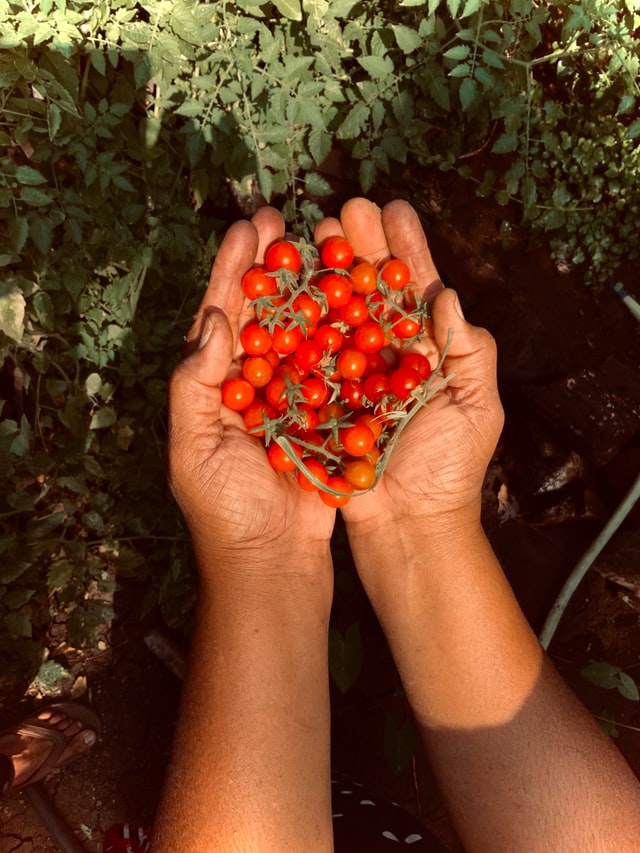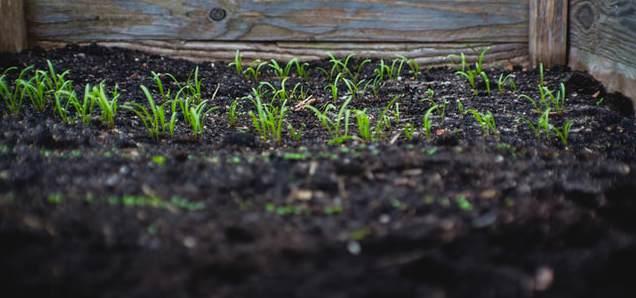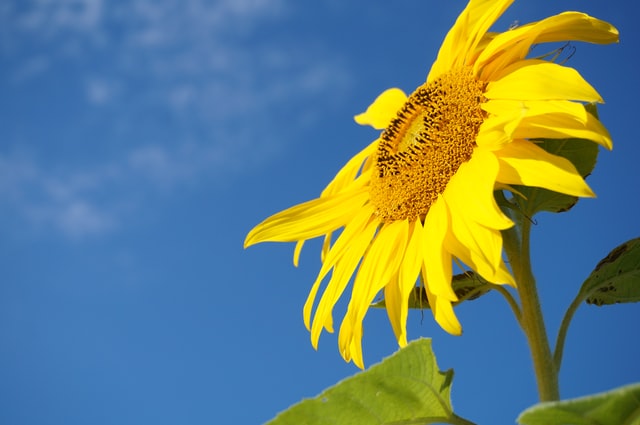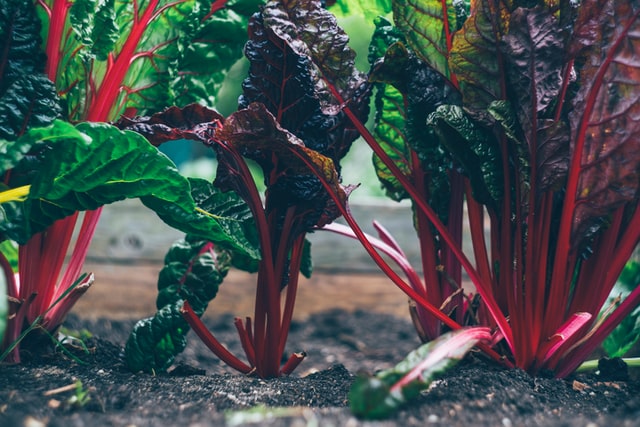Earth Care: The Community Garden

St. Andrew’s raised-bed community garden on the north edge of its east parking lot features 26 8’ x 4’ plots and eight 12’ x 4’ plots. Most of these are available to parishioners and our neighbors in the community, although a few beds are reserved for communal growing of herbs and demonstration purposes. In concert with our Earth Care values, we encourage gardeners to share some of their fresh produce with area food banks.
How can I obtain a plot?
People who have had a plot the previous year must renew their registration prior to March 1 or it will be made available to others. Please contact the church office (503-646-0629) with any questions.
Registration opens for new gardeners on April 1 each year.
Register for a garden plot by completing the Plot Contract and Liability Waiver forms found on the garden kiosk or by clicking on the links in this sentence. Submit the completed forms along with your check, made payable to St. Andrew Lutheran Church, to the church office (St. Andrew Lutheran Church, 12405 Butner Road, Beaverton, OR 97005). If no plots are available or your application does not meet the garden requirements, your check will be returned and your name added to the garden plot waiting list.
What is the plot fee and how are they assigned?
4’ x 8’ Plot: $20
A second plot of the same size may be assigned for an additional $20 fee, provided that you apply for the second plot at the same time as the first.
4’ x 12’ Plot: $30
A second plot of the same size may be assigned for an additional $30 fee, provided that you apply for the second plot at the same time as the first.
Each gardener/group is limited to two garden plots per season. Individual or group plots will be assigned randomly. No second plots will be assigned until all individuals or groups have a chance at their first plot. The most easily accessed plots will be reserved for people with an Oregon Disabled Parking Permit.
Groups will have priority over individuals when it comes to assigning new 4’ x 12’ plots. If any of these larger plots are available after April 5, the plots will be made available to individuals.
What is provided at the Community Garden?
· Raised-bed space in which to grow food, herbs, and flowers;
· Organic fertilizer;
· Water for irrigation;
· Amenities such as parking, garbage cans, and compost bins;
· First pick of your plot year after year (with deposit only).

When can I start planting?
You can start planting at any time. The planting deadline for plots is June 1. Plots that remain unplanted after the June 1 planting deadline are assumed abandoned and will be forfeited without a refund of plot fees.
The minimum requirements to getting started include: weeding, planting or working the soil in preparation for planting, and pathway clean-up.
Water in the gardens is turned on by April 1 (weather permitting) and shut off by October 31.
What are the Community Garden rules and guidelines?
Rules and Guidelines…all gardens have them. They address issues such as abandoned plots, weeds, parking, etc. These guidelines help make sure our gardens are child friendly and good family places to be! Have a fun and productive growing experience this season. Thank you for your cooperation and support of all of the following:
1. Respect church property
Do: Respect your neighbor’s garden and the rights of the community residents as well as appreciate the fact that this land has been made available by St. Andrew Lutheran Church.
Do: Dump garden waste in the appropriate compost bins at the garden site. Our parks, greenbelts, and wooded areas are not a place for garden weeds, as weeds can be invasive, destroying our natural vegetation and habitat for wildlife.
2. Plant sensibly

Do: Plant vegetables, herbs, flowers, and small fruit plants for home consumption.
Do: Donate your produce if you will not use it.
Don’t: Use your garden plot to make soil. Community garden plots are to be used for produce or plants only.
Don’t: Plant trees or other plants that shade adjacent plots.
3. Consider your neighbors when it comes to structures
Do: Keep any garden structures (supporting posts, etc.) to a height of 4-6 feet tall and 4 feet wide, and do keep these in the center of your garden plot. These structures tend to shade neighboring plots from early and late day sunshine, oftentimes robbing your neighbor’s garden of needed sunlight, especially in early spring and late fall.
Don’t: Place greenhouses in the community gardens as they may block sunlight from neighboring plots.
Don’t: Erect fencing of any kind around your plot.
Don’t: Use plastic sheets, tarps, orange snow fencing, etc., on your plot. We want to keep the community garden a beautiful and inviting place for your fellow gardeners and the neighborhood.
4. Help maintain walkways
Do: Take responsibility for half of the pathway(s) surrounding your plot. These walkways must be free from weeds and other obstructions.
Don’t: Have plants growing into the paths or hanging over the paths.
Don’t: Store items in the walkways (equipment and garden refuse can be stored temporarily while you tend your plot).
5. Irrigate thoughtfully
Do: Conserve water. Keep your hoses leak-proof.
Do: Be courteous and limit your use of watering time when others require water or keep in mind to water when few other gardeners are present.
Do: Be considerate of the neighboring gardens when watering your plot and do not drag hoses over neighboring gardens.
Do: Be aware of where the water lines are before you till or dig. Notify the church office immediately if you find a problem with the irrigation system.
6. Refrain from using synthetic chemicals
Do: Let us know if you need or want information on organic gardening, including organic alternatives to fertilizers and pest control.
Don’t: Use ANY synthetic chemicals, fertilizers, pesticides, or herbicides. They are prohibited in our community gardens, walkways, and grassy areas. Please use only organic products.
7. Park between the lines
Do: Use the designated parking area only. Please defer to persons with an Oregon Disabled Parking Permit.
8. Harvest regularly and give what you can to charity

Do: Harvest your crops once they have matured. This may keep the frequency of “free-pickers” from entering the gardens in search of ripe produce. It will also minimize excess waste and garden rot.
Do: Contact a fellow gardener or call the church office if you cannot harvest your plot. If you have extra crops and you would like to share with the community, please check the kiosk for a Donation/Food-Giving List.
9. Keep the area clean
Do: Pick up litter from the pathways and common areas. This will contribute to the health and cleanliness of the entire garden.
Don’t: Throw rocks or other heavy items into the garbage cans. They make it difficult to empty out the garbage cans.
Don’t: Throw weeds and rocks over the fence.
10. Involve children in the garden
Do: Teach your children the many benefits of gardening.
Do: Work to keep our gardens child-friendly, make every effort to see that children respect neighboring garden plots, walkways, and other gardeners.
11. Monitor your pets
Do: Keep your pets on a leash when in the garden and keep them out of other’s gardens. Pick up after your pets and dispose of waste in the trash can, not in the compost bins.
12. Limit use of power equipment
Do: Bring your own seeds, gardening tools, etc., for your plots. Small power equipment (power tillers) must be run by adults only. Power is not provided for electrical equipment.
13. Be alert to deer, vandals, and other garden pests
Do: Be aware that we can do very little about the occasional marauding deer, pesky yellow jackets, and free pickers.
Do: Get to know your neighbors and keep an eye on the community garden. Security of the garden plots from vandalism is the responsibility of the gardeners.
14. Inform us when you’re going away
Do: Contact a neighbor gardener or the church office if you have to leave town on vacation, and may not be attending your plot for a short time. Or, if you must leave town for an extended period of time and need to abandon your garden, please let us know as soon as possible to close out your paperwork. Remember: plot fees are not refundable.
15. Respond to any notification of violations
Do: Following all the above guidelines should keep you free from receiving violation notifications. Ignorance of these guidelines will not be an excuse to receiving a violation. This will also ensure that everyone will have a successful and enjoyable gardening season. Failure to maintain your garden plot in an attractive manner, and after due warning, could result in forfeiture of your gardening privileges. Please read our policy below:
A written notice of the violation will both be posted in your plot and mailed to the address given on your rental agreement. The gardener will have 5 days to correct the problem. If there is no response to the warning and letter, your plot and fee will be forfeited for the year.
Notice: With the forfeiture of your plot, you have removed your rights for preferential plot reservations for the following year.

